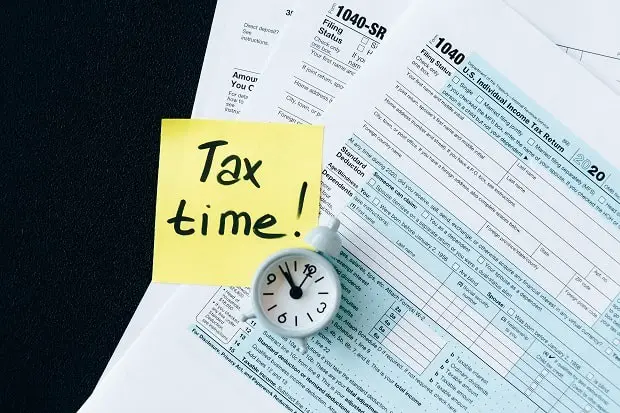
A freelancer’s life is certainly to be envied.
No fixed working hours, no commuting, no early morning meetings, no boss watching your every move. You might say, having total entrepreneurial freedom. But there’s one thing we are all liable for paying taxes. Whether we own a business, work for someone else, or are classified as a freelancer or self-employed, we must contribute to our nation’s coffers. This begs the question: how do file taxes as a freelance writer? Or as a freelance artist or photographer? Well, it may not be easy, but I’m here to offer some valuable tips. I’ll help you avoid the unnecessary hassle and potentially hefty penalties for putting off paying your taxes till the last minute.
How to File Taxes as a Freelance Writer (Things You Must Know)
1. Understand the tax terminology
Before we dive deep into the filing thing, you need to understand the terminology first. Please note that the terms you use in business are not necessarily the same ones used for tax filing. For example, the business income may be called revenue, fees, commissions, or earnings. For tax filing purposes, all these terms are collectively referred to simply as income. Profits, for that matter, are called net earnings from self-employment in tax jargon.

2. Know your entity and income type
When you work as a freelance writer, you are self-employed, which is equivalent to owning a business or a private profession. There are many types of income, including self-employed income. As a freelance writer, you offer your services to different companies or individuals, so you have multiple sources of income. You should have a basic knowledge of what income category you fall into and what taxes you need to pay so you aren’t completely in the dark.
3. Understand the basics of self-employment tax
One thing you should know about the self-employment tax in the United States is that you must pay Social Security and Medicare taxes. The self-employment tax is a combination of social security and Medicare taxes. The Social Security part is 12.4% and the Medicare part is 2.9%, which totals 15.3%. If you’re an employee and you get paid through a W2, that 15.3% is split into two: your share and your employer’s share. But, as a self-employed individual, you pay both shares.

4. Track your income and deductions
To file taxes, you need to keep track of two main things: your income and your deductions. As self-employed, you are taxed on the NET result of your efforts for the year. However, you can declare your operational expenses, such as office rent and utilities, which became your deductibles. For example, let’s say you take in $80,000 as gross revenue your deductible expenses are $20,000, and your net income (essentially your profit) is $60,000. So, you pay the federal income tax based on that $60,000.
5. Get your 1099 forms
If a single business or client pays you over $600 a year as an independent contractor, you should receive a Form 1099-MISC, or Miscellaneous Income, by February of the following year. This form documents the amount you earned. You need to compile every 1099 you receive and report them on your tax returns. The IRS matches the information on the forms with what you report on your returns to make sure you report your income properly. Another thing to keep in mind is even if you made less than $600 and didn’t get 1099, you still need to report it.
![]()
6. Document your income and expenses
Even if you don’t get your 1099s, you should find a way of documenting your income because you are required to report all that. You can, however, offset that income with your expenses. So, make sure you get your income and expenses recorded together. The key is knowing how much you earned and spent toward your freelance business and having a well-documented record of everything. There are over a dozen accounting software you can use to document your income and expenses. It includes QuickBooks Online, FreshBooks, Zoho Books, etc.
7. Keep your receipts safe, preferably in digital form
During the year, keep track of your expenses in all tax-deductible categories. You’ll be glad you did when it’s time to file your annual return. You’ll also want to keep your receipts handy. The IRS can typically audit you up to six years after you’ve filed returns, so it’s wise to keep your receipts safe for that number of years. Choose a good receipt filing system that works for you. Since we live in a digital world now, you can use online programs or apps such as Shoeboxed, Evernote Scannable, and NeatReceipts to digitize receipts.
8. Do not overpay on your taxes
Many freelancers end up overpaying on their taxes because of the lack of information. Not all money coming into your business is taxable. As an independent contractor, you can control how much taxes should go to the government. Expenses incurred toward business are eligible for deduction. Travel expenses, data storage costs, telephone bills, internet bills, office rentals, office supplies, business equipment, payment processing fees, and more can be written off when paying your taxes.
9. Pay your quarterly estimated payments
Federal income taxes must be paid all year long. Full-time employees’ salaries are usually subject to withholding, meaning the employer deducts a small percentage of the employee’s paycheck toward income tax. But because you are self-employed, the clients you work with will not usually take taxes out of your check, so you must pay them on your own. As a freelance writer, you must make estimated quarterly payments toward your taxes if you owe at least $1,000 by the end of the year. Tax payments must be made by April 15, June 15, September 15, and January 15.

10. Hire a professional tax consultant
One thing you can do is find someone who knows a lot more than you do regarding this matter. While all accountants are familiar with filing taxes, even in individual state tax requirements, you should seek assistance from someone who has experience in representing self-employed individuals or home business owners. Accountants can be expensive, but they can help you take care of everything, from choosing the right form to fill out to determining how much to pay and eventually filing it.
Key Takeaways
If you’re a freelance writer, you want to make sure you know what you need to get ready for tax filing. Whether you decide to file your taxes yourself or hire a tax professional, you should at least know the basics of annual returns. If you’re doing just a little freelance writing on the side, you’re better off on your own. But you may probably miss out on some ways to lower your tax liability. As you earn more through freelancing, you’ll benefit from paying a professional to file your taxes. Additionally, good record-keeping puts you in the best position to take advantage of tax breaks, to which you are entitled. Next up, you may want to explore a guide to the best bookkeeping tools for freelancers.
Get your free PDF report: Download your guide to 100+ AI marketing tools and learn how to thrive as a marketer in the digital era.
Hey there, welcome to my blog! I'm a full-time entrepreneur building two companies, a digital marketer, and a content creator with 10+ years of experience. I started RafalReyzer.com to provide you with great tools and strategies you can use to become a proficient digital marketer and achieve freedom through online creativity. My site is a one-stop shop for digital marketers, and content enthusiasts who want to be independent, earn more money, and create beautiful things. Explore my journey here, and don't miss out on my AI Marketing Mastery online course.


